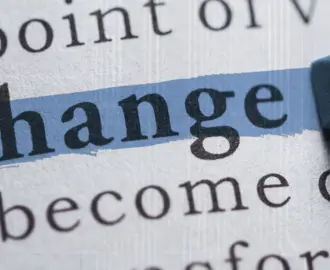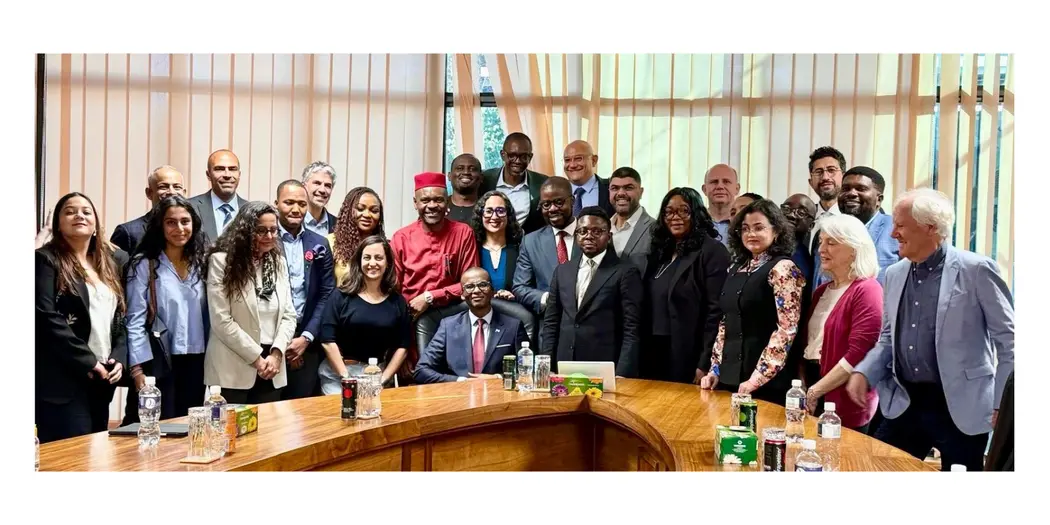MIT Kuo Sharper Center for Prosperity and Entrepreneurship
Entrepreneurship
From Scarcity to Scale: Reclaiming Africa’s Future Through Voice, Vision, and Venture Building
Blog by Layla Abushakra
Over the last few days that I have spent in Botswana with the MIT Kuo Sharper Center for Prosperity and Entrepreneurship, I have found myself caught between reflection and revelation. Sitting in rooms filled to the brim with passion and questions, bold statements and sharp minds, from Foundry Fellows working across the beautiful continent to government officials and startup founders, I’ve been reminded of something powerful: Africa does not need solving, it needs scaling.
Africa doesn’t want our pity; it needs unity. It needs a reminder of its centuries of history and rich ancestry. It needs voice, not silence. It needs investment not just in Africa, but with it.
At one point during the Foundry Fellowship reunion in the gorgeous Kasane, surrounded by evergreen and the soft sound of the river rippling and burbling, squeezing through the window, a fellow from Kenya asked a deceptively simple question: “What is peace?” is it merely the absence of flying bullets and the chilling whistle of a flying bomb? Or does peace imply justice, equity, and the ability to speak with no fear? With my head down in the back of the room, heavy fingertips from notetaking for the last two hours, and a thin cast of dust over my hair from the early-morning safari, the discussion that took place after this question was asked, stuck with me.
We don’t often realize the privilege that we have in staying silent during times of inequity or injustice, while others who are less privileged, pay the price of that very silence. But when you speak up, when you stand for something, even with a shaky voice and trembling legs, you begin to shift things. You reclaim agency.
I used to think that peace was the subtle sound of a dove flapping its wings into a blue sky. It was quiet, serene, and white. But now I see that peace is loud. Peace is bold, peace is confident, and it has a voice.
The challenges that Africa faced over the last centuries, being robbed of its resources and internal abundance, happened for a reason. These challenges were not accidents; they were legacies. Colonialism didn’t just draw arbitrary borders; it built economies that were designed to extract instead of to empower. Since 1960, $152 trillion has been extracted out of global growth markets, including Africa. More than 80% of the Africa’s mineral wealth is controlled externally. The effects linger through the corrupted economies and isolationist policies that many have been conditioned to adopt. People forget that there was a time (pre colonization), when Africa was more united and when trade was free flowing. If Africa is to re-claim that simple heritage of unity and abundance, the dependence on the West that every African carries within them, can and should die.
In the meetings, we dove deeper into the impacts of colonization with things like question bursts or conversations about how the current state of the Africa is a clear reflection of our twisted past. Sentiments of respect and empathy were exchanged as poignant and upsettingly unheard stories were shared. We looked at things through the lenses of law, economics, history, and lived experiences. I learned that many African economies are still operating under colonial frameworks. Even today, African nations are pressured to borrow from global financial institutions that often reinforce inequality under the guise of “support.”
Why is Africa still dependent on the West despite its wealth in resources? This question echoed throughout the conference room in each meeting. The answer lies in systems deliberately designed to keep African countries reliant. From exploitative trade relationships to harmful media stereotypes, Africa is often portrayed through a lens of deficiency, not abundance. In one of the most striking discussions, we talked about mindset as the foundation of decolonization. History is being erased from school curricula in places like Nigeria, a dangerous trend that disconnects youth from their roots. But knowledge is power, and reclaiming African stories is crucial to dismantling internalized racism, sexism, and white supremacy. We must unlearn what we’ve absorbed subconsciously and be intentional about building new beliefs rooted in truth, justice, and collective pride.
Through the wisdom of the fellows, I realized that the path forward begins with community and confidence. Africa must believe in its people, its innovations, and its stories. The world needs to stop looking at Africa as a problem to be solved and instead recognize it as a force to be reckoned with. The key isn’t waiting for outsiders to invest; it’s helping Africans see the power within themselves.
In Botswana, I had the privilege of hearing the Vice President speak about the nation’s current political and economic transition. Despite its reputation for strong governance, Botswana - like many other African countries - is in a period of recalibration. There’s a bold ambition to restore and exceed the country’s high standard of leadership. But vision alone isn’t enough. Implementation, accountability, and systems are what truly build a nation. Botswana is actively rebuilding its financial management infrastructure. It’s reframing its identity - from a “landlocked” to a “land-linked” one. That mindset alone speaks volumes. Language matters.
Foundry Fellow cohorts and team meet with the Republic of Botswana Vice President and Minister of Finance, H.H. Mr. Ndaba Nkosinathi Gaolathe
The government is investing in AI skills, health infrastructure, renewable energy, and youth-driven entrepreneurship. But challenges persist, especially when it comes to service delivery, technological gaps in the areas of medicine and education, and long-standing institutional comfort zones. Still, one thing is clear: Botswana is choosing to evolve. And that choice has been a true inspiration.
At the startup bootcamp for early stage entrepreneurs that took place in Gaborone at the Botswana Innovation Hub, I learned that a startup is more than just a business; it’s a belief. A startup is temporary. It exists to search, to experiment, to try. It’s not a company yet. It’s in motion. It’s about building something that’s scalable, repeatable, and transformative. This mirrors Africa’s journey. Right now, Africa is a startup continent that is full of ideas, bursting with energy, and searching for its own repeatable processes for success. This is already happening.
Africa went from 12 million dollars in startup investment to over 6.5 billion in 2022. The continent’s digital economy is projected to hit 45 billion dollars by 2029. Countries like Gabon, Libya, and Botswana are urbanizing at a rate faster than the global average. Educational outcomes have significantly improved, with more girls in school, better completion rates, and a rising tide of potential. Still, nearly 70,000 skilled professionals leave Africa each year in search of opportunity. This is a brain drain they cannot afford.
So how can we fix this? We have to stop asking whether Africa is capable, and instead show the world that it is capable. To ourselves, first, then to the world.
Today, Africa is still mostly a net-consumer of innovation, using apps, platforms, and processes produced elsewhere. Africa is fully capable of becoming a net producer. If it wants to reclaim its global position, it has to do this. Because innovation isn’t just about coding or venture capital, it’s about confidence. It’s about believing your ideas matter and that they deserve the chance to scale. It’s about collaboration, not just inside of countries, but across them. Africa doesn’t need every nation to do everything, they need regional specialization, cross border cooperation, and a focus on knowledge transfer, not just raw material exports.
That is what it means to move from dependence to dignity.
One quote from the bootcamp that Dina H. Sherif, Executive Director of the MIT Kuo Sharper Center, shared really stood out to me: “What if people started investing with Africa, not just in it?” It was a powerful shift in perspective. Watching everyone’s eyes light up during Adel Boseli’s sessions also left a lasting impression, but it was this quote that reframed my thinking. It’s not about charity; it’s about equity. It’s about asking: How do we build systems where African founders have ownership? Where African youth lead the way? Where innovation flows inward just as much as it flows outward? Africa doesn’t need saviors. It needs partners. Allies. Builders. Believers.
If this experience has taught me anything, it’s that our voices matter. When you’re confident, passionate, and loud, you can bring people together. You can spark belief, and belief is the root of any movement. From fellowships to boardrooms, I’ve learned that silence solves nothing, but voice does. Even if I’m not a policymaker, CEO, or founder (yet), I am already a part of the solution. Because transformation doesn’t start from capital, it starts from conversation.
Africa is not behind, it is becoming.
Related Posts




